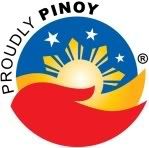Open Source Health Care Alliance 2007
The recently concluded OSHCA conference entitled “Moving the FOSS Agenda in Healthcare” showcased variety of topics revolving around the application of FOSS in health care. The Open Source Health Care Alliance is an international organization which advocates the use of Free and Open Source (FOSS) technologies in health care. The said conference was attended by various stakeholders in health care system ranging from health informatics consultants, medical professionals, software developers, network administrators, health policy makers and end users.
The topics covered in the four-day conference have been divided into the following concepts:
1. FOSS concepts and status
2. FOSS Healthcare projects
3. FOSS Business Concepts
4. Interoperability and standards
5. Trends in Healthcare Informatics Technology
6. Developers Workshop and Training
Various facilitators from different countries presented the current trends in health informatics and healthcare system in general. The use of free and open source technology in healthcare was thoroughly emphasized on the sessions with real life projects demonstrating its benefits and advantages. One of the major concerns also discussed in the conference are the standard conventions and facilities used to allow systems communicate and share data. Through the use of FOSS, the interoperability between information systems is much more seamless since there is an open access to the softwares' source codes. Some major issues concerning health information systems (proprietary and non-proprietary) raised are interoperability, patient privacy, vendor lock-in, sustainability, licensing and master patient index. The methodologies of open source technology have been known to have direct solutions and work around in addressing the issues mentioned.
In general, the OSHCA conference has fulfilled its goal of bringing FOSS concepts and advocacies in health care information systems. The speakers are generally knowledgeable and competitive enough to deliver their respective topics. The arrangement of having parallel sessions allowed the participants to choose from different topics of their preference. Almost 70% of the topics are purely conceptual in nature, the remaining 30% are technical. The “conceptual” topics are adequate enough to update the participants on the current trend of FOSS health care informatics which is informative to both novice and advanced participants. The technical sessions on the other hand have “a little of everything”. Even though there is a diverse set of technologies and platforms discussed during the technical workshop, all are relatively free and open source in nature and can be used to implement health information systems. Each technology and platform has a learning curve depending on the level of the application's complexity. Some platforms like Python, Ruby on Rails and OpenMRS can be used to develop any type of EMR system while platforms such as
The interaction between facilitators and audience also varies. The informal, classroom setup in workshop and small group discussion has allowed the users to freely exchanged ideas (question->feedbacks->discussion) unlike the joint session in which the flow of conversation is more controlled. Despite the lack of time, facilitators were able to aptly respond to the queries made by the participants.
All sessions that I have attended are useful and essential to the area of its concerned. For example, there are various hospital information systems such as GEM/Primacare, MyOSCAR and Care2x which are alternative to existing proprietary counterparts. Most open source applications follow Open Standards or specifications that are being used so that systems can be interoperable. There are also non-technical and socially-oriented discussions such as “FOSS in Post-Capitalist Era”, “Open Source in Public Health System” and “Brazilian and Indonesian Experience in Implementing FOSS” which provides key guidelines for policy makers both in the health care and in ICT. The value of open source technologies can be further realized and maximized if it has been applied for the benefit of the general public. Around the world, there are already numerous FOSS applications that are being used for public health sector such as the Community Health Information Tracking System (CHITS), “Touchscreen EMR’s in
The conference presented topics that will help to jumpstart and initiate the implementation of FOSS. The lessons learned from the conference can only materialized once the theories have been translated into practice. The potential impact of open source technologies can be felt thru strong community support and advocacy. Personally, the realization the long term benefits of FOSS and renewal of my interest and advocacies to FOSS are just some of the impacts that I have gained from the conference. If there is one word that could sum up the impact FOSS can make, it is empowerment.
One of the immediate plans after the conference is to allot some time studying MUMPS,



<< Home